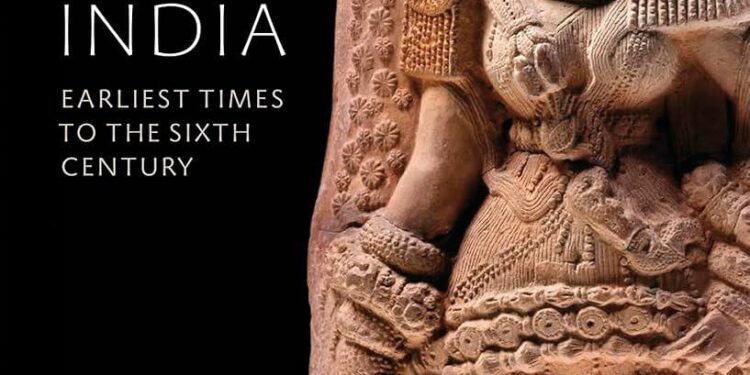Column: The Transformative Influence of Ancient India on the World
In today’s era of globalization, where diverse cultures intersect and influence one another, it is crucial to acknowledge the historical foundations of these interactions. Ancient India, a significant cradle of civilization, has played a pivotal role in shaping numerous facets of contemporary society—from mathematics and science to philosophy and spirituality. This article examines the intricate contributions from ancient Indian culture that have not only transformed its own region but also left an enduring imprint on global civilization. By revisiting the intellectual and cultural milestones achieved by ancient India, we can appreciate how this rich heritage continues to resonate in modern thought and innovation, urging us to recognize our shared histories. Join us as we explore the remarkable legacy of ancient India and its lasting impact on our collective human experience.
Pioneering Contributions from Ancient India That Shaped Modern Science
Throughout history, India has been a source of groundbreaking innovations that laid essential groundwork for modern scientific disciplines. Scholars from ancient Indian civilizations excelled across various domains including mathematics and medicine, significantly influencing current practices. A prime example is the introduction of zero as a numerical concept by mathematician Brahmagupta in the 7th century; this revolutionary idea transformed arithmetic operations and facilitated advanced calculations. Additionally, India’s decimal system streamlined numerical representation—an essential foundation still utilized in today’s mathematical equations.
Furthermore, advancements in medicine such as Ayurveda reflect an extensive understanding of holistic health principles. This traditional practice emphasizes maintaining balance within the body while introducing herbal remedies that remain relevant within contemporary medical frameworks. Key texts like Sushruta Samhita, authored by physician Sushruta himself, outlined surgical techniques alongside anatomical knowledge that foreshadowed modern surgical practices. The table below highlights several monumental contributions from ancient Indian society that continue to shape global scientific discussions:
| Innovation |
Field |
Impact |
| The Concept of Zero & Decimal System |
Mathematics |
Pillars for advanced mathematics and computing technologies. |
| Ayurveda Medicine |
Healthcare |
A holistic approach still embraced today. |
<
td >Yoga
<
td >Health & Wellness
<
td >A technique integrating mind-body wellness influencing fitness trends globally.
<
tr >
<
td >Plastic Surgery Techniques
<
td >Medicine
<
td >Innovative methods documented in historical texts.< / tr >
Cultural Exchange: The Impact of Indian Philosophy on Global Thought Systems
The influence exerted by Indian philosophy transcends geographical boundaries; it has significantly shaped global thought processes and cultural practices alike. Visionaries such asBuddha, Adi Shankaracharya,and Mahatma Gandhi introduced transformative ideas surrounding non-violence, dualism, along with comprehensive insights into consciousness—concepts resonating across various philosophical traditions worldwide. With its profound focus on dharma (duty), karma (action),and moksha (liberation), Indian philosophy offers fresh perspectives challenging Western ideologies while enriching them simultaneously.
This exchange fosters increased interest in practices like yoga and meditation which aim at harmonizing body with mind—a trend gaining traction globally for enhancing well-being across cultures.
The dialogue surrounding philosophical ideas encourages revisiting age-old wisdom through contemporary lenses; scholars are increasingly valuing intercultural engagement fostering mutual understanding.
An illustrative example lies within interdisciplinary studies inspired by texts such as Bhagavad Gita, bridging spirituality with pressing existential dilemmas faced today—demonstrating how diverse traditions can converge towards enriched insights into life’s complexities.
Ancient Agricultural Practices from India: Paving Paths Toward Sustainability Today!
The agricultural methodologies developed during ancient times laid foundational principles for sustainable farming techniques still applicable today! One notable method was crop rotation which preserved soil fertility while minimizing pest outbreaks.
This practice allowed farmers to alternate crops grown within fields naturally replenishing nutrients without reliance upon chemical fertilizers.
Additionally,mixed cropping promoted biodiversity enhancing resilience against climate fluctuations ensuring consistent yields over time—a timeless synergy between agriculture & ecology!
An exemplary feat includes sophisticated irrigation systems showcasing engineering brilliance! Innovations like kanats (underground aqueducts) alongside step wells optimized water usage especially vital during arid conditions enabling year-round cultivation thereby securing stable food supplies necessary amidst growing populations! Moreover,the integration agroforestry—the simultaneous cultivation trees alongside crops—provided shade improving soil health whilst increasing carbon sequestration potential! These age-old techniques reveal deep ecological comprehension inspiring present-day agricultural strategies prioritizing sustainability amidst evolving challenges!
Concluding Reflections: Embracing Our Shared Heritage Through Knowledge Exchange!
Examining how profoundly ancient India’s legacy influences human history reveals contributions extending far beyond regional confines—from pioneering concepts rooted deeply within mathematics/science realms down through rich cultural/philosophical advancements woven intricately throughout modern societal fabric! As we contemplate this narrative reflecting upon past achievements becomes paramount recognizing ongoing impacts these ideas hold presently too! Understanding interconnectedness among diverse cultures cultivates nuanced appreciation towards shared experiences moving forward together embracing lessons learned throughout history fostering dialogues valuing richness inherent within cross-cultural exchanges empowering knowledge’s enduring strength!
No Result
View All Result
No Result
View All Result










